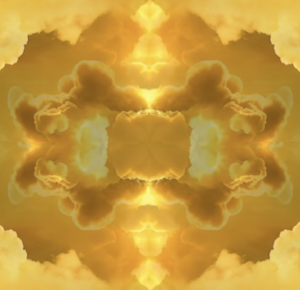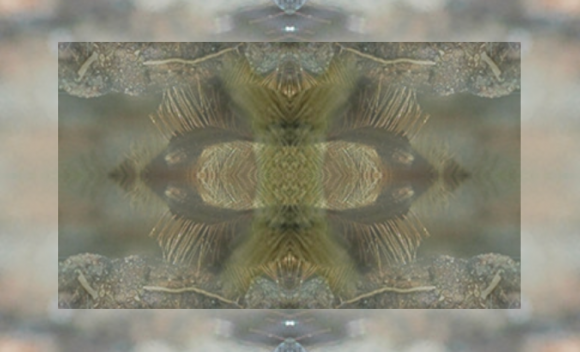Before we can go deeper into the notion of sharing (or, alternately, mirroring) psychological contents between the personified functions who produce them and the ego who becomes aware of them, we have to address another potential circularity — and this one is even more subtle.

In my last post, I twice compared the false perspective of the ego with the more complicated reality we realized from the Buddhist meditation Jung describes (or, alternately, by way of the mirror theory from Renaissance neoplatonism). The meditation proceeds by visualizing the psychological functions as autonomous figures, and thus reveals the whole of the psyche as more complex and interactive than it appears from the homogeneous monolithic image under which the ego operates. With respect to the sense functions (e.g., seeing), the ego wrongly believes that itself both produces the percept and then also is aware of it. With respect to the more general psychological functions (such as, e.g. thinking), again the ego’s perspective is that itself both produces and becomes aware of thoughts. (And similarly, then, for feelings, intuitions, memories, fantasies, and so on.)
I wrote that this self-misunderstanding (so to speak) of the ego is the result of an unconscious projection, where the unconscious process which actually does the seeing projects itself onto the ego, thus making it appear (to the ego) that the ego does it. And when we describe the meditation, in Jungian parlance, as “withdrawing of projections from the ego”, it’s precisely this projection which we’re talking about.
Now the problem is this: we mustn’t forget that according to the Jungian notion the ego is simply the formal factor that relates all conscious psychological contents (and only those) to a unified subject. The ego is, in some sense, a “personality” (a coherent way a human being can be seen to have an inner life and externally observable behavior that both exhibit a psychology) — but the ego is not a person. The latter would be comprised of both a conscious and an unconscious psychology, and is therefore more comprehensive. (Or, to make the same point in an alternate, also Jungian, terminology: the ego is just one complex among others, and he have to assume that a person combines multiple such complexes, many of them unconscious.) But only a person can be said to do (think, feel, remember, …) some things consciously and others unconsciously. The ego can’t: the ego is (by definition) just one half of the equation, namely that half of all things done (and thought, felt, remembered, …) consciously. And therefore, it cannot be correct to say that the ego “unconsciously” thinks it produces percepts (or thoughts) itself.
Thus if the unconscious process which actually does produce the percepts (or thoughts) projects itself onto the ego, this is again better not modeled on the kind of projection that goes on between two entire persons (where one projects psychological contents onto the other). For this is clearly not analogous: the two relata here are conscious and unconscious elements in psychology (or alternately: complexes), whereas there they’re complete persons, each with both conscious and unconscious psychologies.
To summarize these two problems, then. If we imagine (as we do in the meditation Jung describes) the whole of the personality to consist of the (mostly empty) ego and a host of personalized functions (the senses, the four basic psychological functions, and perhaps more), then there is, first, an open question about how the percepts can emerge into awareness (they cannot be “shown” by the sense function and then “seen” by the ego) or how even other psychological contents, such as thoughts, can emerge into awareness, either (they cannot be “communicated”, “told” or “explained” by the thinking function to the ego); and secondly, there is a problem about how the ego can arrive at the false self-perspective of being the origin of those psychological contents — especially if, as our notion of “withdrawing the projections” suggests, they really are projections (i.e. unconscious constructs).



